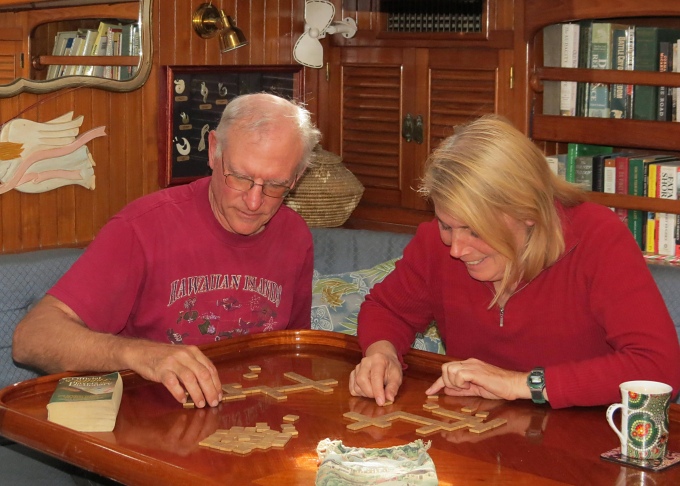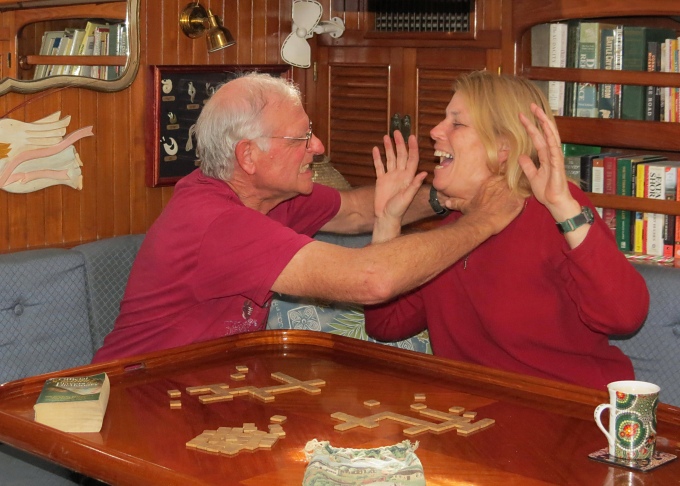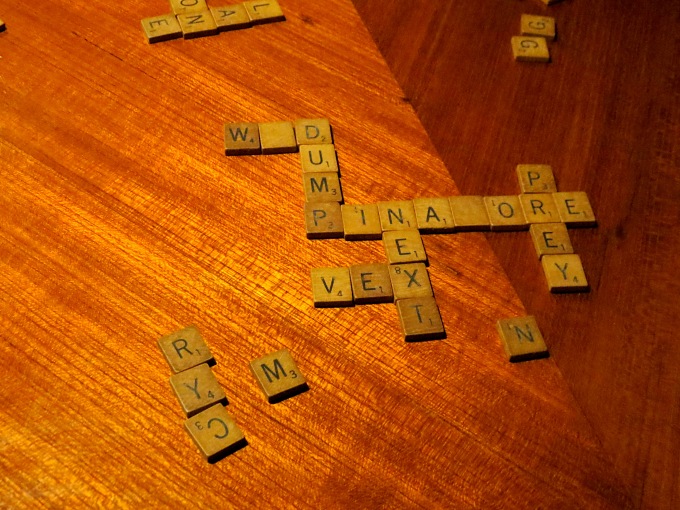Weatherin’ a Nor’eastah
/This was our first nor'easter in quite awhile. With temps in the single digits, shoveling was not top of the list for fun activities, but a necessary evil. I don't miss the cold and snow at all!
Read MoreThis was our first nor'easter in quite awhile. With temps in the single digits, shoveling was not top of the list for fun activities, but a necessary evil. I don't miss the cold and snow at all!
Read MorePeople, the world over, love to play games … usually competitively. Games that are popular in one country are sometimes unknown in another. Folks in Fiji rarely play hockey. Folks in the US rarely participate in banana relays. Traveling from country to country as we do, we get a chance to witness games that are different and many that are the same.
Football is an interesting sport. What we call football in America is not the same as Australian football. And actually, to most of the world, football is soccer and not at all like football as we know it in the USA, or Australian football for that matter. Then there's rugby, of course, which isn't like either American or Australian football. Soccer is certainly played in the US, but it's nowhere near as popular here as it is in the rest of the world.
Baseball is played in other countries, but its roots are here in America. Whitman said it's “America's game” and it's hard to find someone who doesn't have a favorite team. Oh, they play it in Asia and Europe, but it's nothing like the Americas (both of them). Little League is big here and if you grew up in the States you probably played sandlot baseball when you were a kid. On the other hand, we have no explanation for cricket. The bat is odd, the games last a long time and we don't understand the rules.
Basketball, both men's and women's, is played in several places throughout the world although the rules seem to differ depending upon the country. One fond memory was a group of young Embera men in the Darien Jungle of Panama playing basketball in loincloths in the middle of their village. It's an image that stays with you.
We've watched polo, a rich man's sport, but it's definitely not a team sport that most folks will ever expect to play.
Chess, checkers, backgammon and dominoes seem to be popular worldwide games. Cruisers in Mexico and the Carib were crazy for Mexican train dominoes, but we never caught the fever. We especially love those huge chess sets in downtown city parks where people have to move human size chess pieces from square to square.
In the Amazon, we played Sapo. Sapo in Spanish translates to frog and the object of the game was to throw a disc from a measured distance into a golden frog's mouth or into specifically marked holes with numerical values assigned to them. The person with the highest point score wins. There's some skill involved, but the novelty wore off rather quickly.
In French Polynesia, we participated in traditional Polynesian games which included stone lifting, banana relays, coconut husking and outrigger races. Needless to say, though the locals provided instruction and encouragement, we were a sad-looking bunch. It was fun nonetheless.
Re-enactments are popular in many countries. Here in the US, we attended several Civil War re-enactments. Depending whether we were north or south of the Mason-Dixon Line determined who won the particular battle. In Vanuatu, we witnessed a different kind of re-enactment where a century ago locals had attacked arriving missionaries … and subsequently eaten them. The re-enactment stopped just before the “having missionaries for dinner” part, but the attack was definitely authentic looking.
On board, we play lots of card games. Cribbage and gin rummy are two of our favorites. We play backgammon on occasion and Speed Scrabble whenever I can talk David into it. As uncompetitive as we are between us, we still keep score and have been for years. At last count, David was ahead 5,345 to my paltry 5210.
We regularly watch young folks in their tiny Optimist sailboats racing through anchorages and adeptly maneuvering around the big boats and the race markers. Though we always claim we are not interested in racing, it is said that whenever two sailboats are heading the same direction, it's a race. Quite honestly, we truly are not racers and we don't care … but we do like to arrive first.
 I'm hooked on Words with Friends (WWF). Sometimes, I have so many games going with Lin at one time, we call it WWS (Words with Sisters). It still amazes me to be able to play a game with my sister in Boston and have responses in seconds on the other side of the world, including some chat along the way. When we're together however, it's Speed Scrabble that keeps us occupied day and night.
I'm hooked on Words with Friends (WWF). Sometimes, I have so many games going with Lin at one time, we call it WWS (Words with Sisters). It still amazes me to be able to play a game with my sister in Boston and have responses in seconds on the other side of the world, including some chat along the way. When we're together however, it's Speed Scrabble that keeps us occupied day and night.
January 19, 1938 is considered by some to be Scrabble's birthday. Others say that January 19, 1955 was the debut of Scrabble internationally. It had been sold in the USA under various names since it was invented by a crossword enthusiast, Alfred Butts, but it took 17 years for it to make it across the Atlantic and the Pacific to the UK and Australia. It doesn't matter. I just like the game.

I especially like Speed Scrabble on the boat because it doesn't require a board, only the tiles which I keep in a little sack close by in the hammock. The original Scrabble game didn't have a board, just letter tiles, so this isn't that much of a stretch. I'm always hopeful that I'll get David to play and once in awhile he does. It takes serious bribes for that to happen. ;-) He thinks it's too stressful.
I looked on-line for the rules to Speed Scrabble, but none of them seem to be exactly the same way we play it. Variations on a theme suit us. You can play with 2-4 players, but we find 2-3 best. Adapt rules to your own playing style. Here are, however, the real rules (according to the Lemay Girls anyway).

Object of the game: To use all your drawn tiles in acceptable words (Scrabble rules and Dictionary applies) before your opponent(s) does.
SCORING:
------------------------------------------------------------------------------------------------------------------------------
A daily list of mostly obscure holidays and fun ways to celebrate them.
Scrabble's Anniversary (1948)
National Popcorn Day
Eat popcorn while you play Speed Scrabble...impossible!
Hi there and welcome to Just A Little Further!
We are David and Marcie Lynn and we've lived aboard our Liberty 458 cutter-rigged sailboat since 2000.
What began as an urge to travel slowly and economically at our own pace ended up an adventure of a lifetime.
Well, here we are ... nearly 90,000 miles under the keel, 5 continents, 5 Great Southern Capes, 36 countries and almost two decades later, still taking one passage at a time and going just a little further.